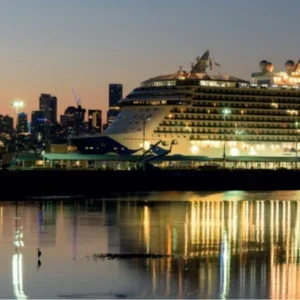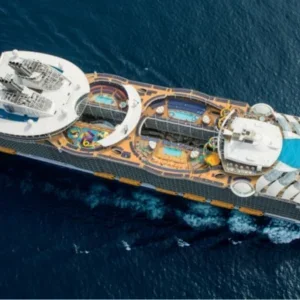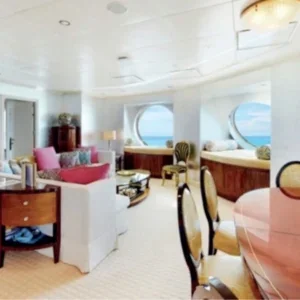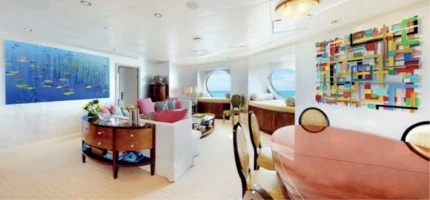
The cruise industry is amassing record-breaking booking volumes in 2024. Indeed, it has become one of the fastest-growing tourism sectors, set to rise from 20.4 million annual cruise passengers in 2022 to a forecasted 31.5 million by 2027, according to the CLIA’s 2024 State of the Cruise Industry report.
While the average age of tourists embarking on cruise vacations steadily holds in the mid-40s (47), some surprising new demographics and trends are emerging among those booking cruises in 2024. In the CLIA report, among the top 15 cited cruise trends highlighted, the rise in popularity of extended cruises, particularly among elderly and more affluent passengers, stands out. In a post-Covid world, tourists are seeking more bang for their buck, and a longer cruise permits a more immersive experience of sea and land-based exploration over a more relaxed period.
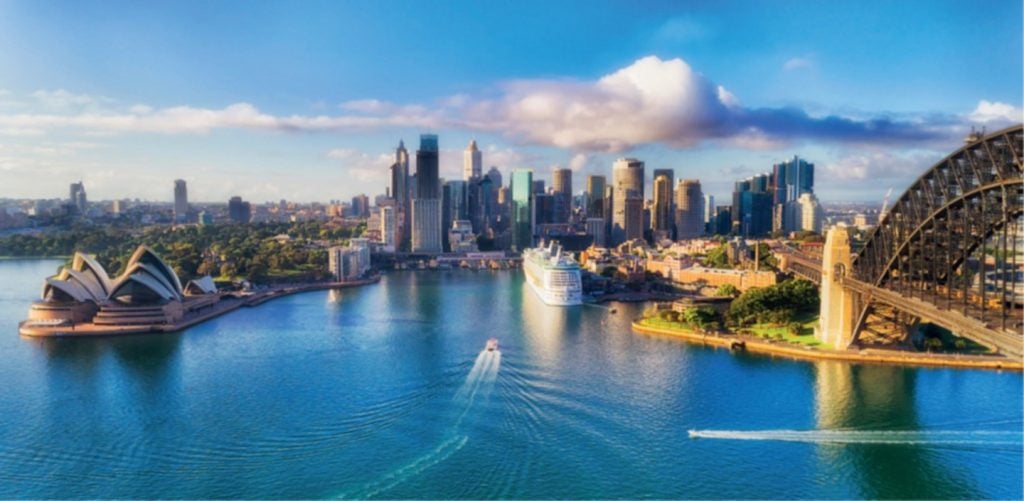
World cruises are also on the rise. Pent-up demand from the pandemic caused a surge in bookings in 2022 and 2023, both from new passengers deeming cruising safe as well as cruisers whose trips were delayed or cancelled. Oceania Cruises’ world cruise for 2023 sold out within one day of sales opening on 27 January 2021. In 2022, the Norwegian Cruise Line subsidiary unveiled its 2024 “Around the World in 180 Days” itinerary and four “distinct, grand” voyages, driving the competition for other cruise lines to cater to passengers seeking these longer experiences.
World cruises are gaining popularity
The president of Oceania Cruises, Frank A. Del Rio, has acknowledged that “the remarkable success of our most recent world cruises” has inspired further opportunities for passengers to embark on longer journeys. The company is rolling out its 2026 “Around the World in 180 Days” voyage aboard Vista, Oceania Cruises’ newest and most luxurious ship. The voyage will cross six continents visiting 43 countries, 101 ports and 81 UNESCO World Heritage sites in Southeast Asia, Australia, Europe and South America.
Princess Cruises has also announced its 114-day 2026 world cruise. Terry Thornton, chief commercial officer for the company, says: “This 2026 World Cruise addresses a growing interest in longer voyages that make stops at more exotic destinations, and the urge to do it as part of a more all-inclusive experience.”
In recent years, Norwegian Cruise Line has also been providing longer itineraries for travellers seeking an extended vacation that enables them to cover more hotspots on their bucket lists or venture off the beaten track, without the additional stress of separate holidays and complex travel logistics. Instead, these extended cruises provide a multiplestop shop of sorts.
The average cruise is around 5–7 days long, but with extended cruise itineraries spanning weeks to months at a time, passengers have more time to relax and settle into their vacation. They only have to unpack once, with numerous experiences available on their leisurely-paced trip, from spa treatments and restaurant options with world-class entertainment onboard, and a trip constellated by multiple stops to far and wide destinations.
In December 2023, Royal Caribbean’s nine-monthlong around-the-world cruise set sail, spawning viral TikTok videos created by passengers onboard that have amassed thousands, if not millions, of views documenting the full breadth of a life at sea, from luxury dining to unexpected itinerary cancellations due to poor weather. The pressures of social media scrutiny contribute to the challenges cruise lines must address if they are to keep profiting off cruises of this scale and ensure passenger satisfaction.
Solo travel is on the rise
With solo travel also set to be cruising’s primary emerging audience in 2024, many of these solo travellers are leveraging longer cruises as an opportunity for remote working. Cruise companies are responding by increasing the availability of single-capacity cabins in new ships and retrofitting existing ships to include more cabins designed for those travelling solo. A survey conducted by Cruise. co.uk found that more solo travellers are opting for a sea escape, with 70% of respondents choosing a cruise over a land-based adventure. In March this year, Virgin Voyages introduced a month-long cruise called the ‘Scarlet Summer Season Pass’, supposedly conceived by Richard Branson himself, after the realisation that passengers were taking extended trips while working remotely on the company’s ships. The trip includes four week-long cruises packaged together to appeal to remote workers who want to spend a month at sea in southern Europe.
“People have really adopted the flexible working style, and it resonates with travellers,” Virgin Voyages’ CEO Nirmal Saverimuttu told CNBC Travel. “We’ve got a lot of people who said it feels like incredible value.”
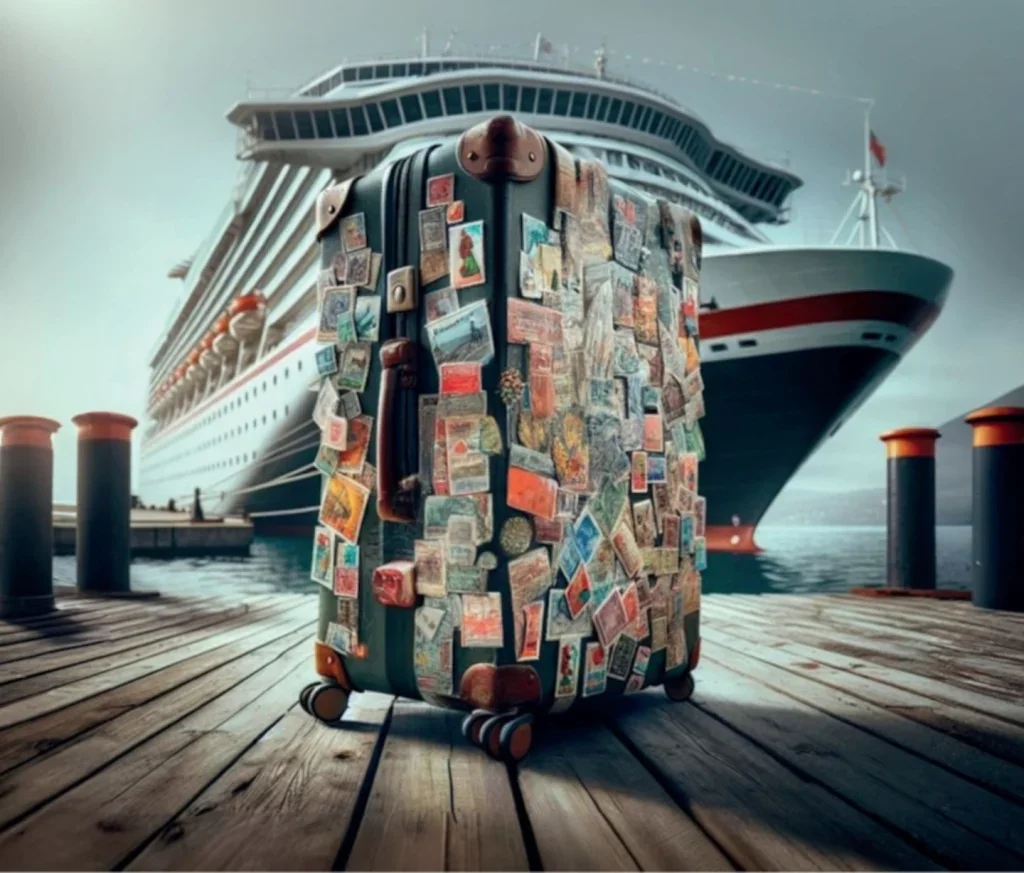
Saverimuttu observed that most of the digital workers who have booked the cruise are in their mid-50s and are employed in full-time remote roles. But cruise lines like Virgin Voyages are also catering to younger audiences through more appealing dining options and entertainment, as younger Gen-X and Millennial passengers are investing in the cruise experience, with Millennials most interested at 77%, followed by Gen-X at 73% most likely to book a cruise over a land-based vacation. Cruise lines are adapting to cater for this wider demographic, providing extended cruises with more varied onboard entertainment, remote working facilities and itineraries catering to passengers of all ages and needs.
“I talk to a lot of younger consumers and the first thing they think about when they go to a city is where are they going to dine as opposed to what are they going to see,” Saverimuttu said.
Norwegian Cruise Line has also increased its offering for solo travellers, including scheduling opportunities to meet like-minded guests through a social calendar of meet-up events in their “exclusive, keycard access only” Studio Lounge, or public areas aboard their ships.
But price point remains an issue for solo travellers, particularly on longer cruises. In 2010, Norwegian Cruise Line was one of the first operators to introduce studio staterooms on Norwegian Epic, which were “specifically priced and designed with solo travellers in mind”. In 2024, the line offers solo guests a range of attractive options with perks such as ocean views and balconies aboard its fleet.
MSC Cruises is also offering solo travellers discounts to board its 2026 world cruise of 118 nights from January to May. Passengers can also opt for the entire round-the-world tour or a shorter segment of the round-trip between Genoa, San Francisco and Tokyo.
Alison Earnshaw, managing director of World Travel Holdings, who reported “great growth” in solo business across brands such as Cruise118 and Six Star Cruises, admitted that pricing “can be a barrier” to solo cruisers without supplemented reductions.
“Whenever cruise lines have special, reduced or nil single supplements, it is a hugely popular message and drives increased interest and bookings from these customers,” she added. “It’s something we’d like to see more of as we know [solo travellers] are an increasingly large sector of the market and something that cruise is uniquely positioned to deliver outstanding customer experiences for.”
Extended cruises have also become a popular option for those at retirement age, given the accessible onboard entertainment and ease of travel. These longer itineraries also appeal to those who prefer to escape colder months of the year with travel to warmer destinations, frequently referred to as “snowbirds”.
In the face of steep rental prices, a retired couple from Australia, Marty and Jess, who have been cruising for decades, booked 51 back-to-back cruises as a “cheaper” alternative to a retirement home, having felt like they had missed out on several years of travel amid the strict pandemic lockdown.
“Eventually I said to my agent, ‘Look, whatever comes, book it,’ and that’s how it got to be such a long cruise,” Marty said. The duo have all of their meals included in the ticket price, and they describe the crew to have become “like family”.
Many individuals even choose to live on residential cruise ships like The World amid a lack of accommodation availability or opting for a lifestyle change. It is the largest private residential ship in the world with 165 residences, with full-time residents as well as others using it as a vacation home or an alternative to owning a yacht. This year, the cruise company Storylines is offering fully furnished one-tofour- bedroom residences on its MV Narrative ship along with studios and two-story penthouses, on board its upcoming ship, with prices starting at $400,000 and rising to $8m.
But to maintain the positive experiences of travellers opting for longer cruises, as well as the communities they visit on-land, cruise lines must remain accountable to ensure that larger-scale trips are well managed, to protect the existing culture of port destinations and tackle locals’ fears of overtourism while protecting the natural environment and creating local economic growth.


